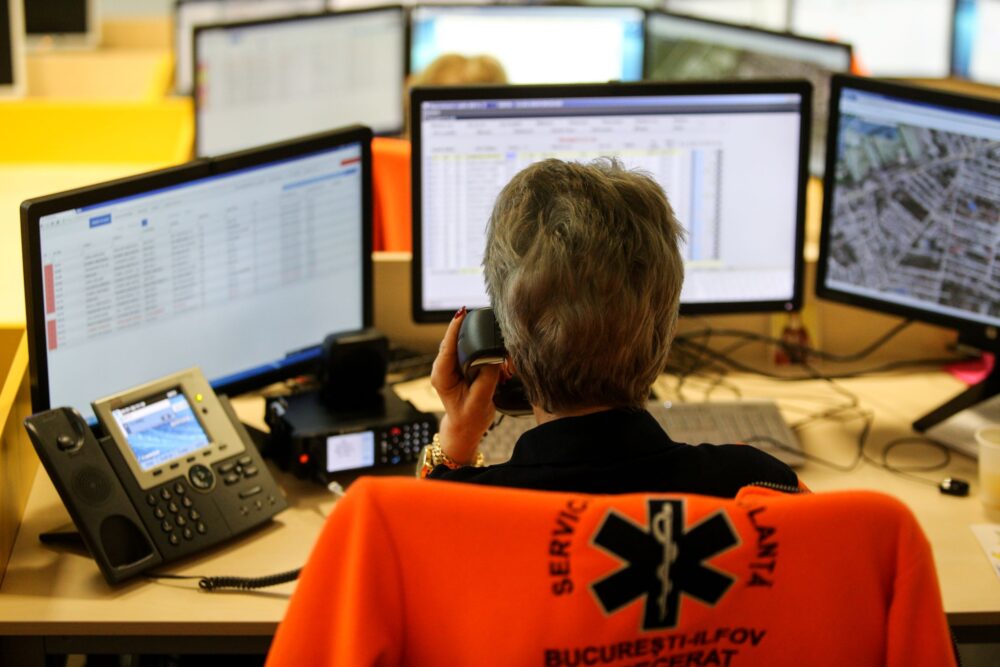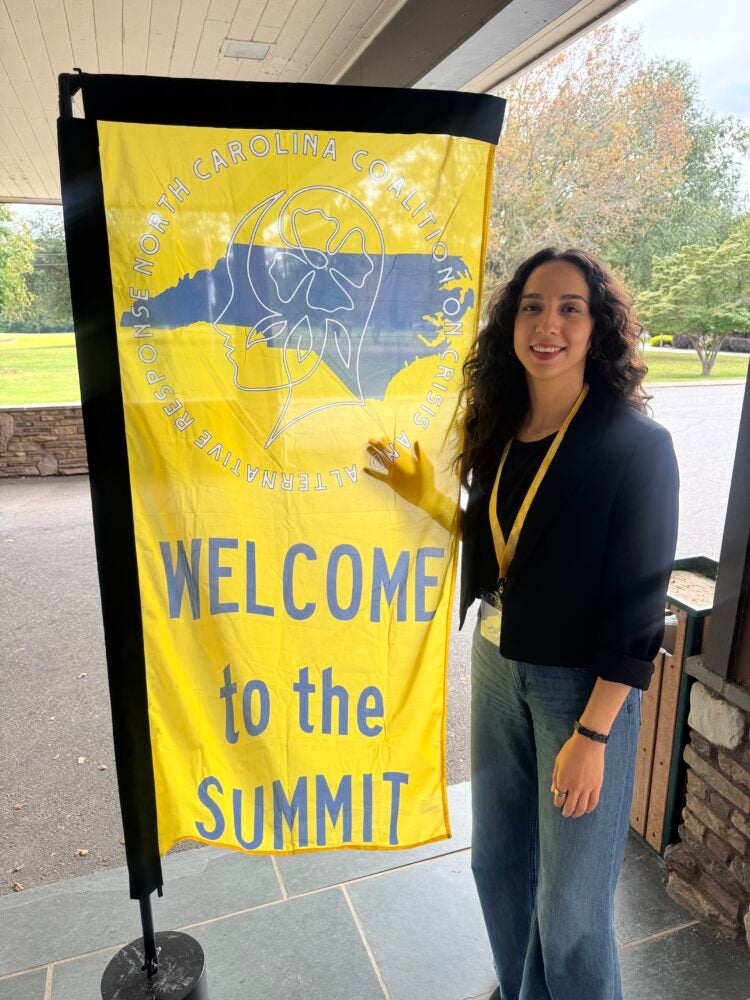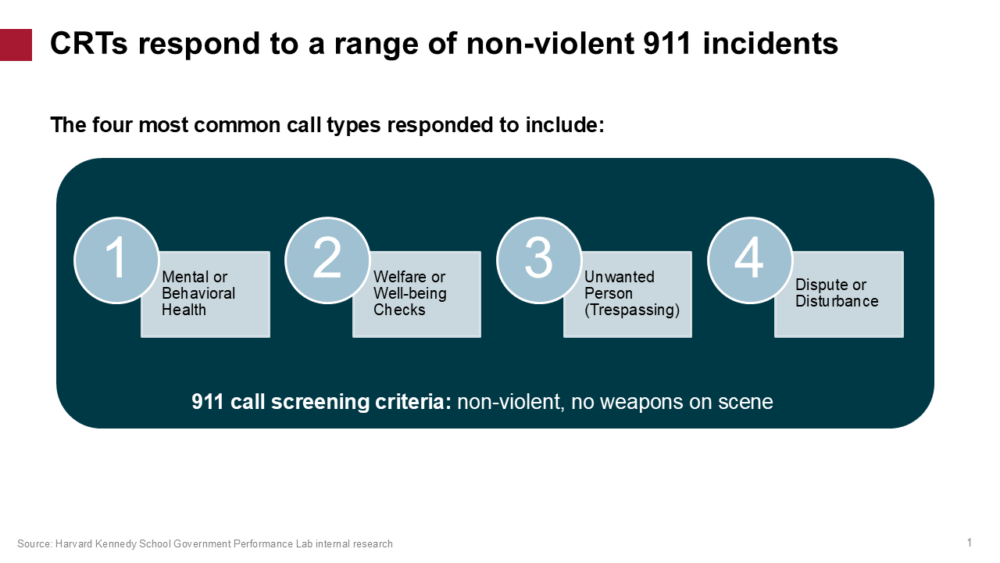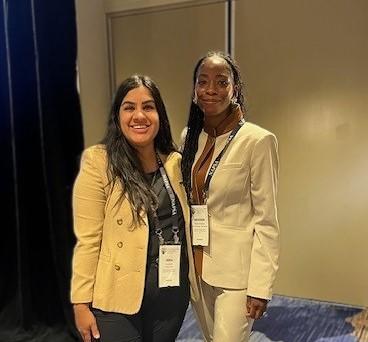
Strengthening Alternative 911 Emergency Response
Gabriela Solis Torres, Director of Alternative Response: Safety & Justice at the Harvard Kennedy School Government Performance Lab (GPL), recently joined 150 community safety leaders from across North Carolina at the state’s first annual Crisis and Alternative Response (NCCAR) Summit in Greensboro. The two-day summit, hosted by the City of Greensboro’s Community Safety Department, gathered dozens of leaders to share practical lessons and reimagine how 911 calls for mental health and quality-of-life crises are handled statewide.
Since establishing the first co-response unit in Chapel Hill in 1973, the state has led innovation in the alternative response field. The City of Durham’s Holistic Empathic Assistance Response Team (HEART) program has gained a reputation for being one of the leading programs in the country – a program the GPL has supported since its launch in 2021.
“North Carolina has been making great strides in recognizing and developing their crisis continuum over the past few years, and we felt like this was a great opportunity to be intentional about bringing everyone together. We believe that a well-connected crisis service continuum is a significant step toward building healthier communities, especially as populations grow and become more mobile,” said Dewey Mullis, assistant team lead for the City of Greensboro’s Behavioral Health Response Team (BHRT) and organizer for the NCCAR Summit.
In her presentation, “Community Response Teams 101: Lessons Learned from Advancing Programs Nationwide,” Solis Torres drew from the GPL’s four years of research and technical assistance helping cities launch, evaluate, and scale specialized community crisis teams.
Solis Torres explained that community response teams (CRTs) provide an additional first-response option for 911 calls related to behavioral health and quality of life, helping jurisdictions deliver the appropriate response to residents who call 911 for help.
Session attendees learned the basics of establishing high-impact CRTs, including how to build the right interdisciplinary team, how to maximize response-call volume, and how to collaborate with 911 dispatch and partner agencies to share program data. Solis Torres also shared common characteristics such as team composition, call types, and the process for dispatching CRTs in the field.
Solis Torres’ presentation showcased a case study of the Community Alternative Response Emergency Services (CARES) team — the CRT program in the city of Madison and Dane County, Wisconsin. With the GPL’s technical assistance, the CARES team has successfully addressed 6,000 calls since 2021, providing a compassionate alternative to police response.
The CARES example shares similarities with several community safety initiatives in North Carolina’s large- and mid-sized jurisdictions, which— like many programs we’ve worked with across the country — are dedicated to fostering better outcomes for residents, including opting for a CRT approach instead of traditional police intervention. Cities like Charlotte, Raleigh, and Greensboro, which are all home to a significant population of the state’s Black residents, have a unique opportunity to embrace strategies that can help reduce unnecessary arrests and their consequences within the criminal justice system.
“At the summit, I saw local leaders from across the state coming together to learn from one another,” said Solis Torres. “There was also a strong, shared eagerness among leaders for better coordination across services. Learning and collaboration are a core part of how we think about helping these agencies improve service delivery for residents.”
The summit demonstrated a clear appetite for peer learning opportunities among North Carolina communities that aim to pilot or expand safe, equitable crisis response programs. Summit participants left with a toolkit of the GPL-designed resources and an invitation to connect further — through the NC Alternative 911 Emergency Response Community of Practice — to turn ideas into safer, more equitable outcomes for all North Carolinians.
As a part of the GPL’s commitment to advancing the alternative response field, our team is supporting a new, free Alternative 911 Emergency Response Community of Practice in North Carolina. This NC Community of Practice will allow practitioners in the state to learn about the local landscape of alternative response and connect with other regional jurisdictions to share ideas and discuss common challenges. Register for the North Carolina Community of Practice here or reach out to GPL Fellow Anna Low-Beer at annalowbeer@hks.harvard.edu with any questions.
Strengthening Alternative 911 Emergency Response
Strengthening Alternative 911 Emergency Response



